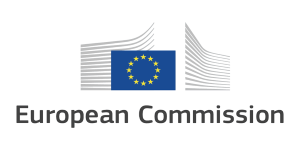The new measures will shorten the gap between the identification of a possible risk and the necessary regulatory action

European Commission is adopting three legislative proposals to: streamline assessments of chemicals across EU legislation; strengthen the knowledge base on chemicals; and ensure early detection and action on emerging chemical risks.
Under this ‘one substance, one assessment' package, a key deliverable of the Chemicals Strategy for Sustainability, significant tasks will be reallocated between four EU agencies, ensuring coherent and transparent safety assessments of chemicals used in products such as medical devices, toys, food, pesticides and biocides.
Citizens, companies, and authorities will benefit from simplified and transparent access to chemicals information, from more harmonised and predictable processes across legislation and from strengthened certainty of the assessments. The new measures will shorten the gap between the identification of a possible risk and the necessary regulatory action. Ultimately, these measures will lead to better and faster protection of people's health and the environment.
The proposals aim to:
Strengthen cooperation and consolidate scientific and technical work on chemicals in the European Chemicals Agency, the European Food Safety Authority, the European Environment Agency and the European Medicines Agency. The agencies will be better equipped to align priority setting, timelines, processes, and methodologies used for the assessment of chemicals. Moreover, knowledge gained from assessments under one piece of legislation (for example on biocides) can be re-used for another one (for example in toys).
Establish a Common Data Platform and introduce a ‘one-stop shop' access to data on chemicals held by the EU agencies and the Commission, compiled under EU legislation. This includes data on hazards, physico-chemical properties, presence in the environment, emissions, uses, environmental sustainability of chemical substances and on ongoing regulatory processes. The Common Data Platform will subsume existing platforms such as the Information Platform on Chemical Monitoring (IPCHEM), the Public Activities Coordination Tool (PACT), and the EU chemicals legislation finder (EUCLEF). It will expand their scope to almost all EU chemicals legislation and complement them with new tools and databases, for example with a repository of human- and environment-based reference values.
Establish systematic collection of human biomonitoring data generated in the EU to inform policy makers about the levels of chemicals found in people (e.g. in blood or breast milk). This will help to better estimate the level of exposure of EU citizens to chemicals.
Set up a monitoring and outlook framework to enable early detection of chemical risks, such as for example from PFAS early enough to prevent that the pollution becomes widespread. It will also enable fast regulatory response and monitor the impact of regulatory actions taken on chemicals. The framework will consist of an early warning and action system and of a framework of indicators, among others.
Empower the European Chemicals Agency to generate data when needed.
Ensure transparency of scientific studies on chemicals, including those commissioned by companies.
The proposals will now be examined by the European Parliament and the Council under the ordinary legislative procedure.
Subscribe to our newsletter & stay updated.